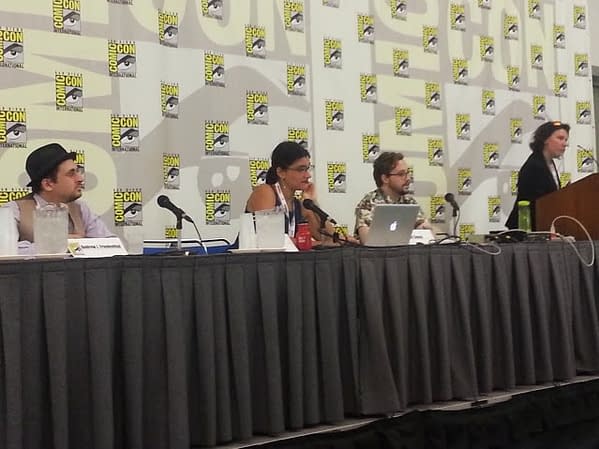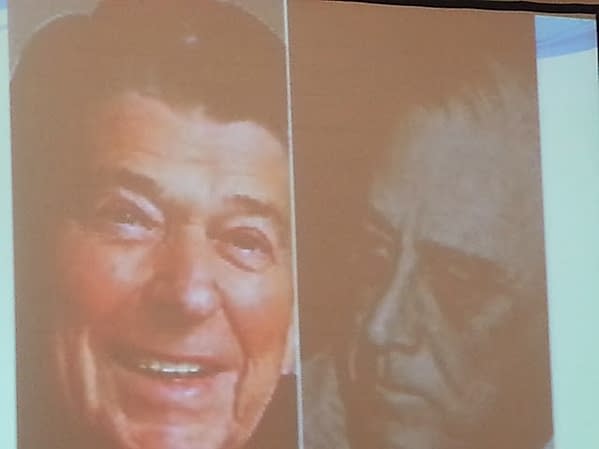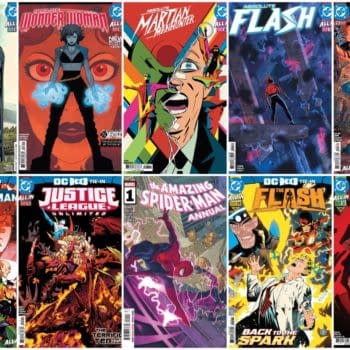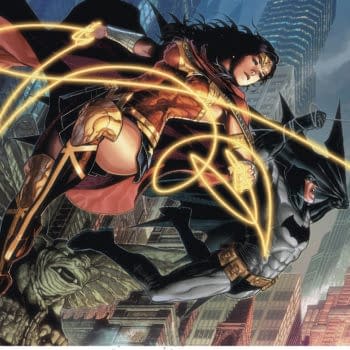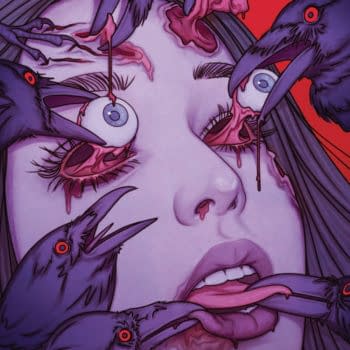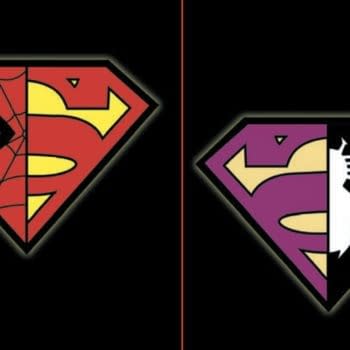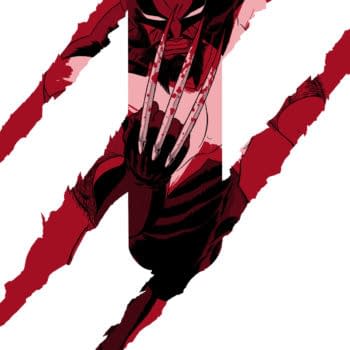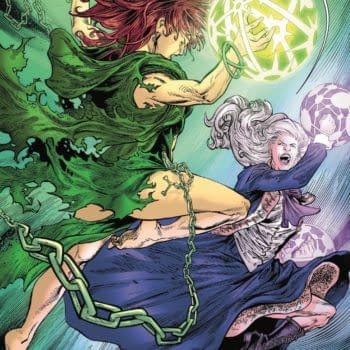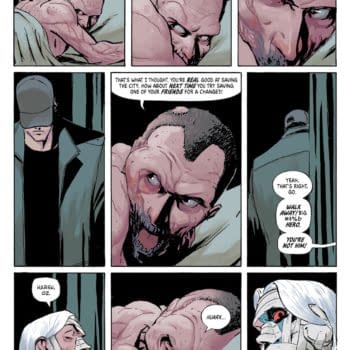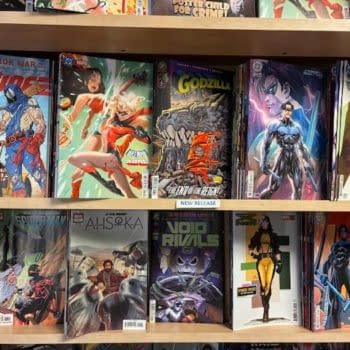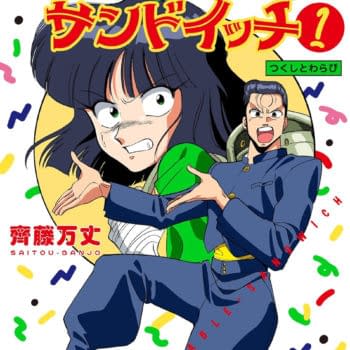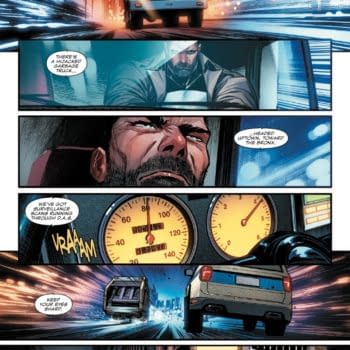Posted in: Comics, Digital, Recent Updates | Tagged: Andrew J. Friedenthal, Comics, Ghenwa Hayek, Sam Cannon, sdcc
Comics And The Violent Past At San Diego
Nikolai Fomich writes;
On Thursday, the first session of the 21st Annual Comics Arts Conference commenced at San Diego Comic Con, where scholars Ghenwa Hayek (from Claremont McKenna College), Andrew J. Friedenthal (from the University of Texas Austin), and Sam Cannon (also from the University of Texas at Austin) gathered for the panel called Comics and the Violent Past.
Professor Hayek began the panel by discussing graphic memoir in Lebanon, where comic memoirists Mazen Kerbaj and Lena Merhej have been forced to deal with the traumatic events of the 2006 Lebanon War. The war, which was fought between Israel and Hezbollah, resulted in over 1000 Lebanese being killed (mostly civilians, including about 300 children) and over one million displaced, with much of Lebanese civilian infrastructure destroyed by Israel.
The national trauma which followed this devastating war has been viewed by many Lebanese as hauntingly similar to the war experiences of their parents a generation earlier. Indeed, Lena Merhej has used graphic texts in her work to show the transformation of her protagonist into her mother – both psychologically and visually. Mazen Kerbaj's comic blog narrated the daily life of an individual during the 2006 War, the protagonist being forced to deal with his earlier admiration of soldiers with his present reality and guilt over having enjoyed some aspects of the war.
Comics, Hayek says, is a medium of remarkable intimacy that has gained new prominence in Lebanon since the 2006 War, and remembrance is especially important in a country of what can seem to be officially sanctioned amnesia, as Hayek states that since 1946 there have been no official textbooks used to teach history in Lebanon.
Following Hayek was Mr. Friedenthal, who discussed Roy Thomas' run on All-Star Squadron. Thomas, says Freidenthal, had the history of WWII and the original Justice Society run in All-Star Comics inextricably linked in his mind, original continuity, retro continuity, and real history all colliding to create his All-Star Squadron run. The series had to reconcile story logic with continuity and real history. Why hadn't Superman and the other heroes put a stop to Hitler and his genocide? Hitler's use of occult magic – a deadly combo of the Holy Grail and the Spear of Destiny prevented the heroes from coming into Europe. These kinds of questions would not have been asked in the 1940's, but for the new generation of JSA fans in the 1980's, they needed to be answered.
The book was special to Thomas not only because of his love of the original super hero team, but also because of his profound admiration of FDR. Indeed, President Roosevelt is portrayed in a superheroic light throughout the run, almost a JSA-er himself, which Friedenthal states is a response by Thomas against the 1980's hero worship of Ronald Reagan, who did much to destroy FDR's legacy. Thomas had to defend himself against some of his own readers, who in the letter's columns would accuse him of ahistorical hero worship, and perhaps a disregard of so.cial history
Finishing the panel was Sam Canon, who spoke about a subject tied to me personally. Cannon discussed Fabio Moon and Gabriel Ba's Eisner and Harvey award-winning limited series Daytripper, in which the protagonist Bras de Oliva Domingos experiences multiple deaths at different ages in his life, many brutal. Canon, while not denying that the work can be read as an affirmation of life, analyzed the comic as a piece of bourgeois literature attempting to process the social problems of Brazil, the ones which neoliberalism has failed to answer.
The repetitive deaths within the text suggest progress is precarious, and thus so is Brazil's first world aspirations. While 21st century Brazil has broadened its middle class – indeed not a day goes by in San Diego where I don't hear some Portuguese spoken by that very middle class on vacation – so much of the population remains poor and excluded from society. Brazil's recent protests directly speak to this, people taking to the streets because of the massive amounts of money spent on building stadiums for the World Cup and Olympics while not providing the health care services and other social programs needed by so many.
I myself am a dual-American-Brazilian citizen, having lived there as a child in a fairly well-to-do family, and often felt a sense of unease as to the endemic social inequality in that country.
The first Comics Arts Conference panel was a success, and if any indication, the rest of the organizations panels well worth checking out for those attending the con.


